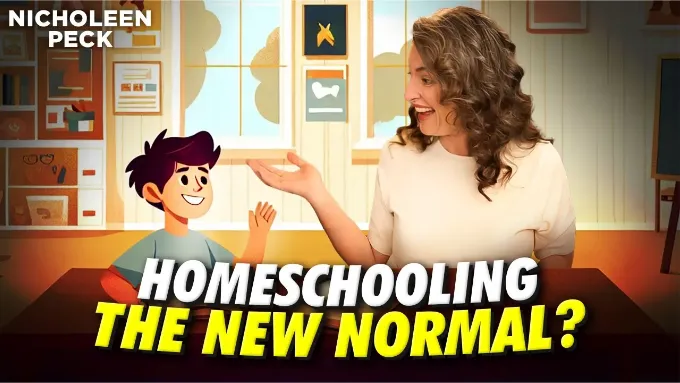
How Many Kids Are Homeschooled In The U.S.?
How Many Kids Are Homeschooled in the US?
Hi, I'm Nicholeen Peck, and I travel the world teaching about parenting, effective communication, strong family bonds, and education, especially homeschooling. In this article, we'll explore the landscape of homeschooling in the US, why it's growing, and how to succeed at it.
I never imagined I'd be a homeschooler. I excelled in school and participated in numerous extracurricular activities. My dad was a public school teacher and a university professor, so traditional education was ingrained in my life. Then, I met someone in my new neighborhood who was homeschooling. Another family across the street from my parents was also homeschooling. Intrigued, I started asking questions and became captivated by the idea.
Homeschooling seemed perfect for my oldest son. At the time, I was fostering children with therapeutic needs, and homeschooling offered me quality time with my children. My son was also exceptionally bright, and I didn't want him to be bored in a conventional school setting. So, I began our homeschooling journey.
In the early 2000s, I tried to find statistics on homeschooling but struggled. However, I attended a conference where I learned that 25% of the population in Ohio was homeschooling. This was astonishing to me, although it wasn't the case in my state.
In the 1970s, there were about 13,000 homeschoolers in the entire US. By the 1980s, this number grew to around 200,000, and by the 1990s, it reached approximately 850,000. When I started homeschooling in the late 1990s and early 2000s, there were 1.5 million homeschoolers in the US. This dramatic growth continued, with 1.7 million in the 2010s and over 5 million homeschoolers in the 2020s.
What caused this significant increase? The COVID-19 pandemic played a major role. When schools closed, parents saw firsthand what was happening in classrooms and many thought, "I can do better than this." Others simply realized they could homeschool effectively. Despite some challenges, the pandemic showed families that homeschooling could work, fostering unity and successful learning at home.
Beyond the pandemic, other factors contribute to the rise in homeschooling. Many parents have lost trust in the public school system due to federal control over education, political agendas, and a lack of moral and character training. Some parents seek stronger family bonds and feel homeschooling offers this.
The trend isn't limited to the US. During the pandemic, homeschooling spread globally, and many families continued after seeing its benefits. I've spoken at major homeschool conferences for over 20 years and witnessed changes in the homeschooling community. Now, diverse families from various backgrounds are choosing to homeschool.
How can you be effective at homeschooling? If you're subscribed to my channel, you know I offer many videos on homeschooling and self-government. A key to success is teaching your children self-governance. This reduces conflicts over tasks like math and chores, leading to smoother days and stronger relationships. Skills like following instructions, accepting feedback, and managing time are crucial for homeschooling success.
For more on homeschooling, visit my homeschool website, heartofhomeschool.net. It offers free content and homeschooling conferences that provide a comprehensive view of homeschooling and its transformative impact on family culture. You can also find parenting resources at teachingselfgovernment.com to support your homeschooling journey.
Visit heartofhomeschool.net today. I'll see you there.

